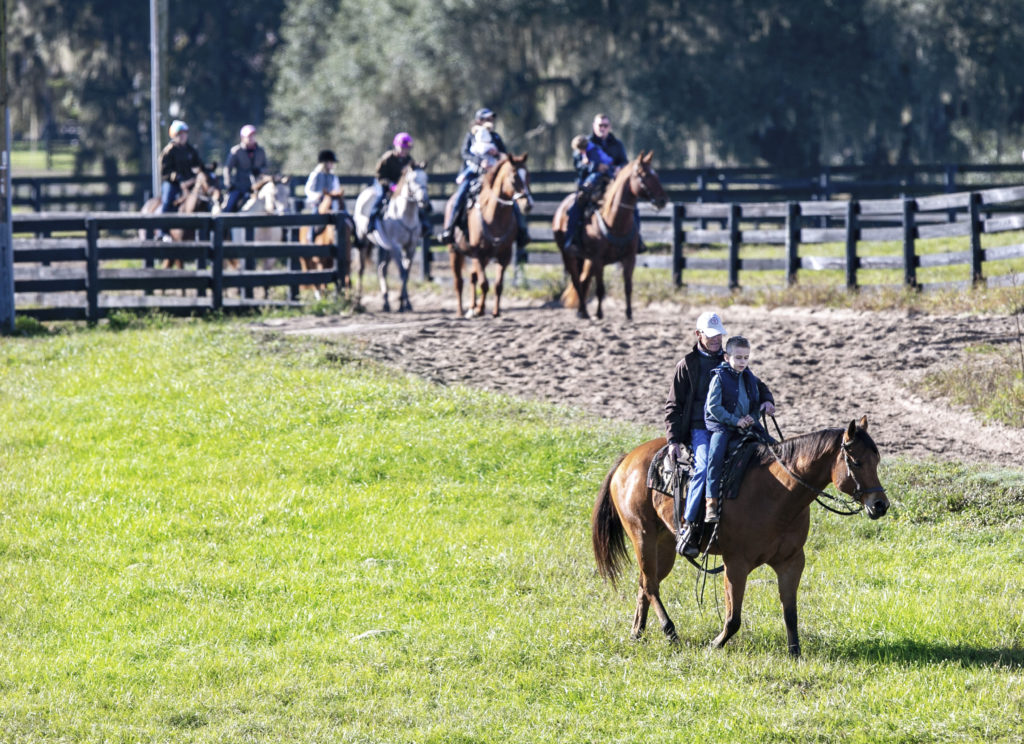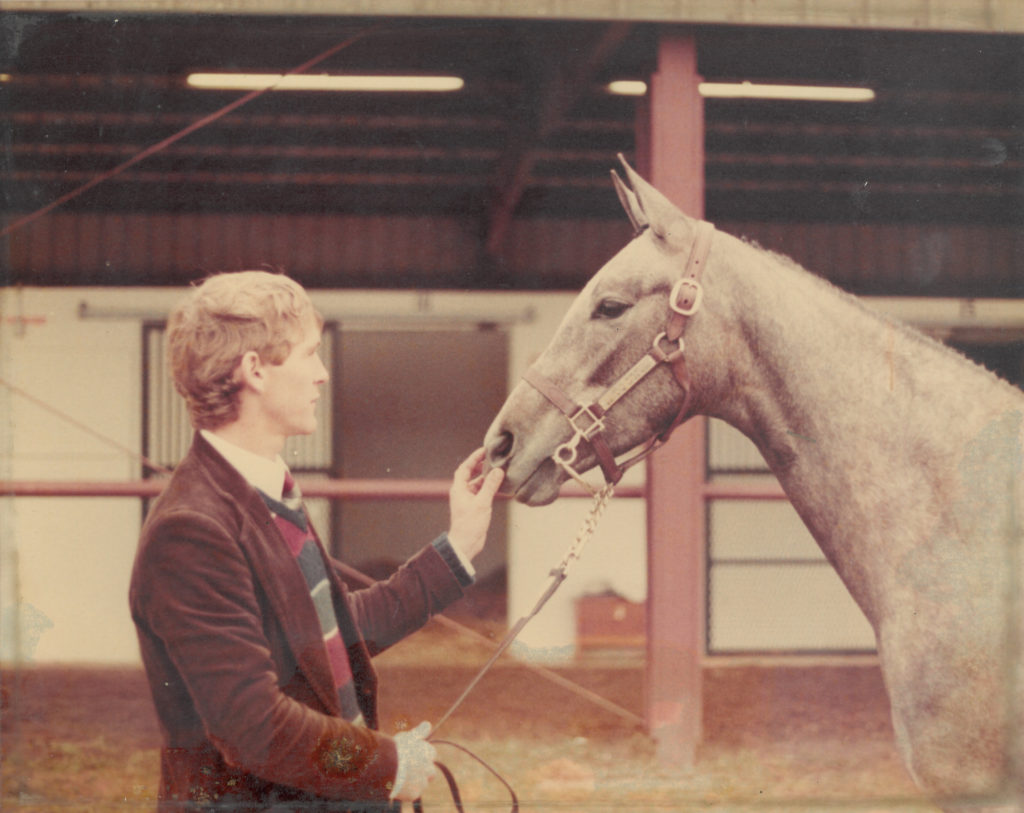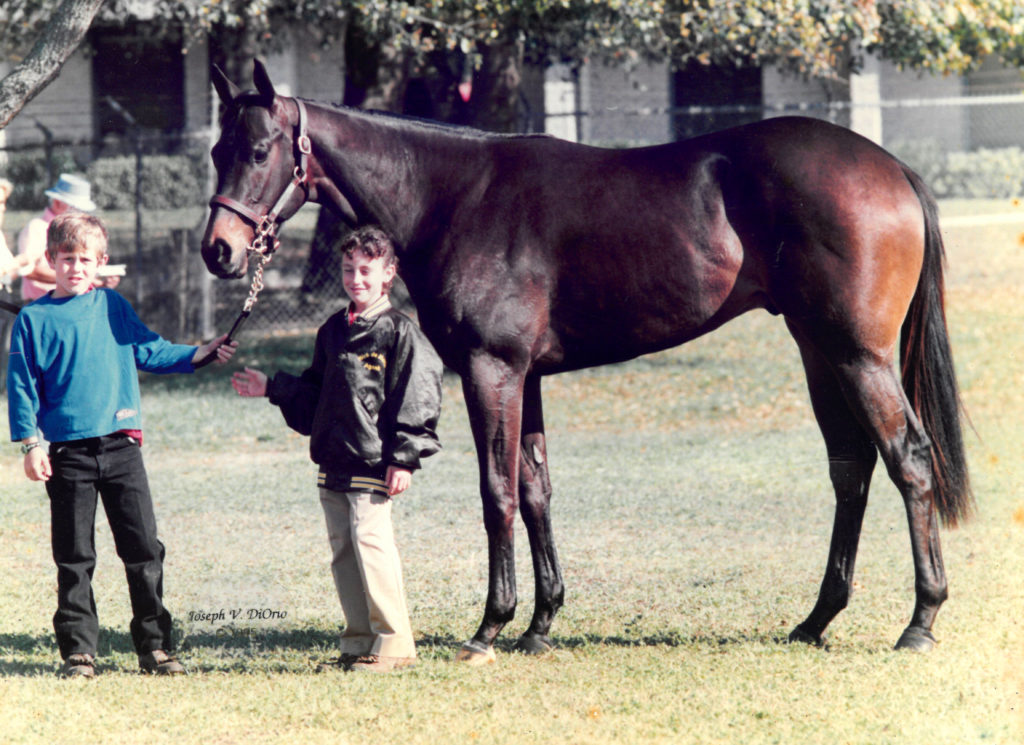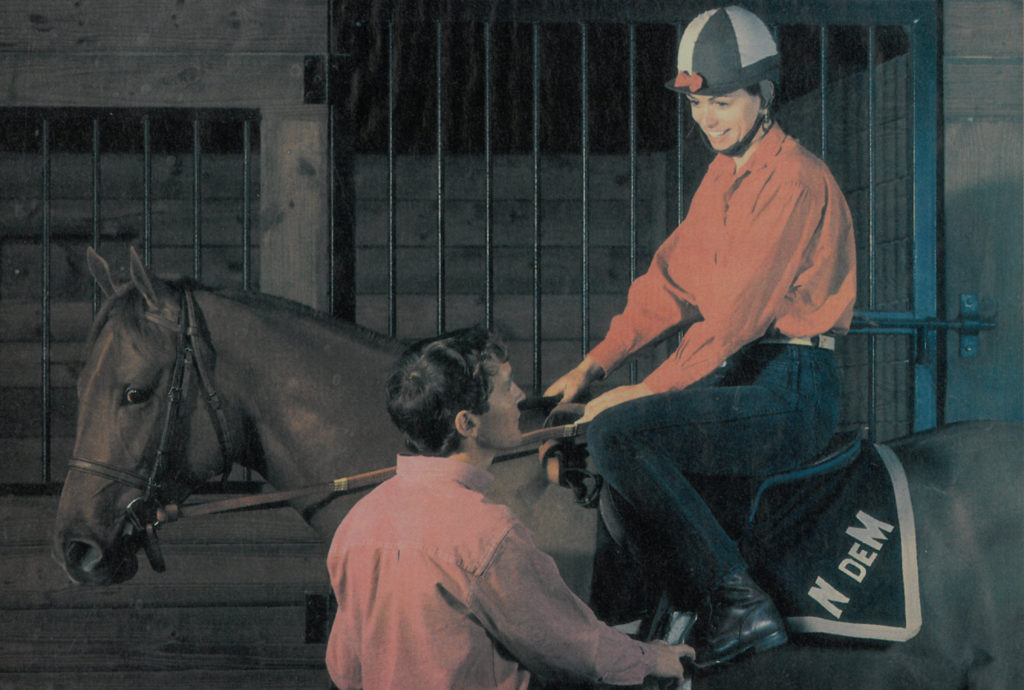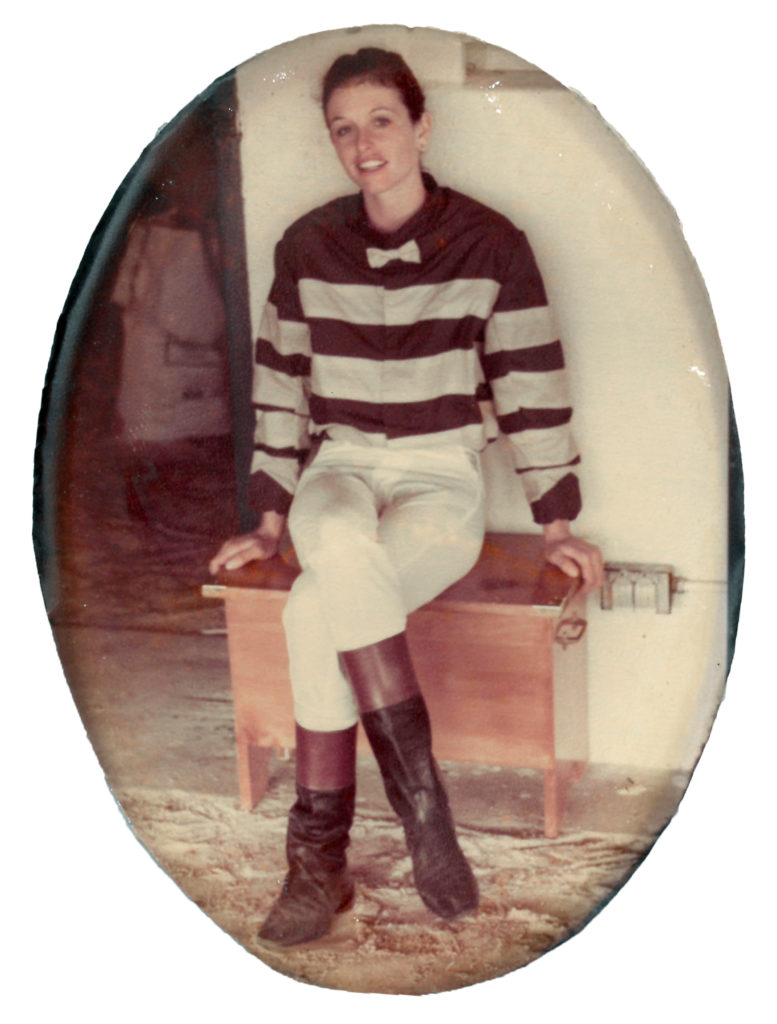Much like the thoroughbreds they raise, train, sell and race, familial bloodlines often play a key role in the people who make a living in the business. This exclusive Ocala Style series takes an up close and personal look into the multi-generation families involved in the Ocala-based Florida thoroughbred industry.
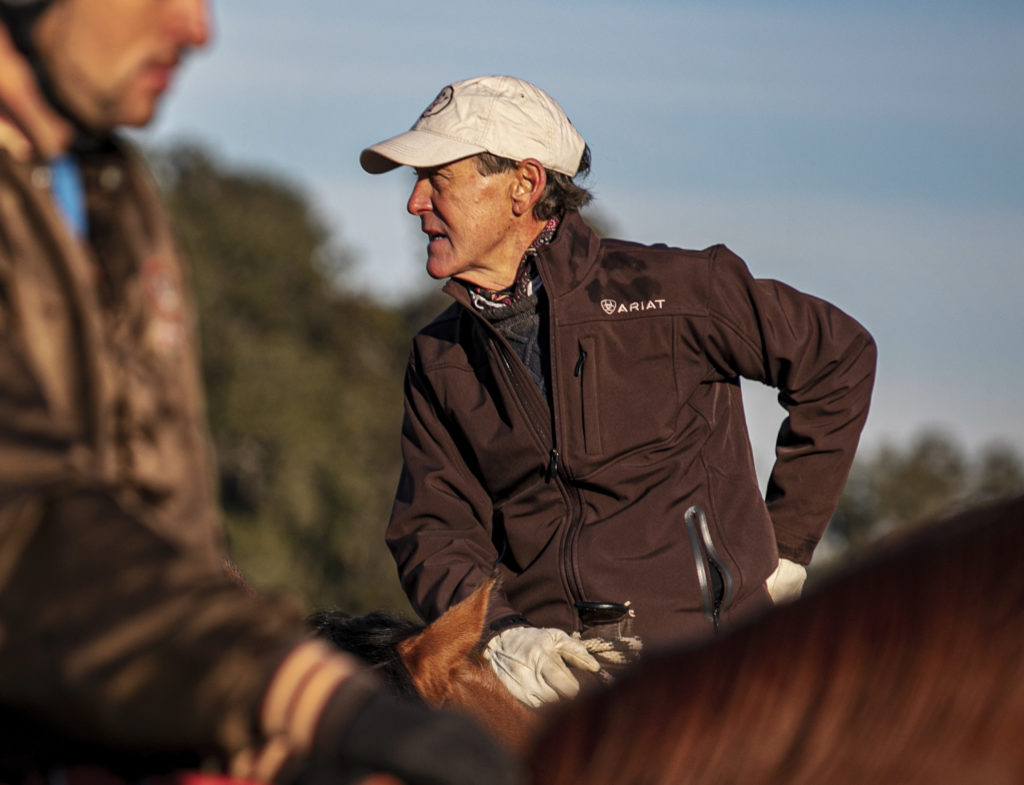
For the de Meric family, the ties that bind are most decidedly of the equine kind. More specifically, the family business is pinhooking and training young thoroughbreds for the racetrack. The term pinhooking gets its name from the Kentucky tobacco trade, where a speculator would buy a farmer’s young tobacco plants, cultivate them and later identify them with a pinned note at market. Buying the plants at a low price and later reselling them at a high price created substantial profits for the tobacco speculator. In the thoroughbred industry, pinhooking describes the practice of buying yearlings in the fall, starting and training them, and then reselling them in the spring as 2-year-olds. And like tobacco speculators, the thoroughbred pinhooker’s goal is to reap a profitable rate of return on their investment. It is a high-risk endeavor, not suited for those lacking in horsemanship nor for the faint of heart.
For more than three decades, Nick and Jaqui de Meric have plied their trade as Ocala-based pinhookers and trainers. They bought their first yearling together to pinhook in the fall of 1982 and have been at it ever since. Today, the de Merics are one of the most respected and successful entities in the business. In 2019, De Meric Thoroughbred Sales was the third-leading 2-year-olds in training consignor in North America, selling 90 head for $12,272,500.
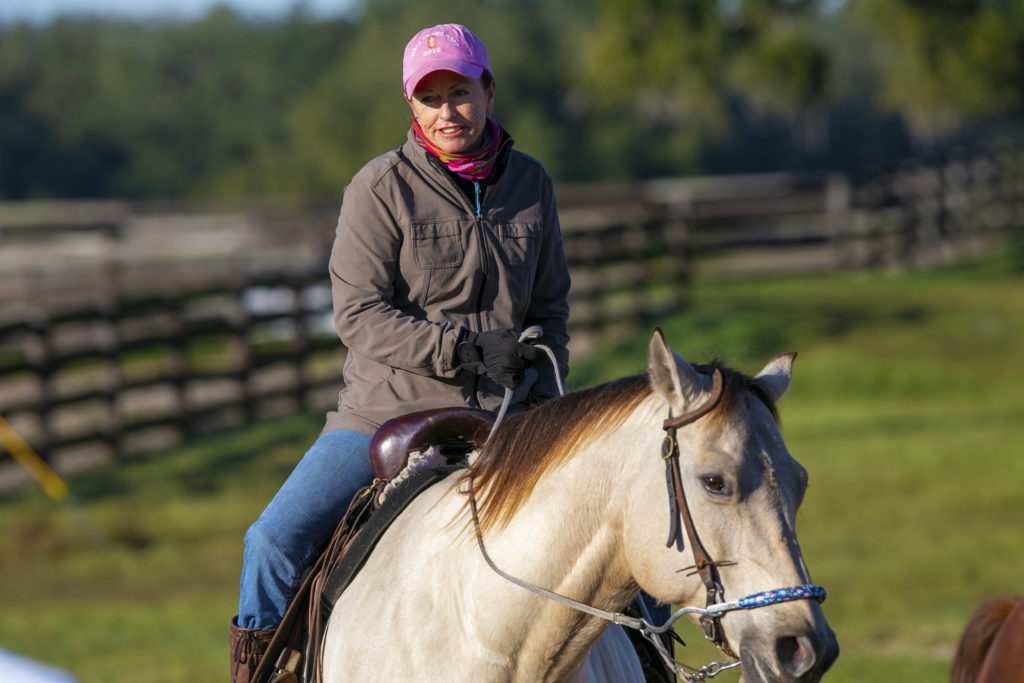
And in the case of the de Meric children, the horseshoe didn’t fall far from the horse. Daughter Alexandra, 34, who goes by Ali, and son Tristan, 32, are also pinhookers/trainers. Ali, with her husband Brandon Rice, a third-generation thoroughbred horseman, operate as RiceHorse Stables. In 2019, they sold 22 juveniles for $959,000. Son Tristan and his wife Valery, a French-Canadian horsewoman, have their own pinhooking/training business, selling 2-year-olds in training as part of de Meric Sales.
“Our children grew up immersed in the thoroughbred business. They came with us to the barn every day and were coming to the sales before they could even walk,” says Nick de Meric, 65. “But we never pushed them to go into the business because it’s a very tough business. If you don’t have a passion for it, it’s not for you.”
Jaqui de Meric, 58, agrees. “Thoroughbreds were our lives, so naturally that was the environment Ali and Tris grew up in. But we just let nature take its course whether they were going to be in the thoroughbred business or not. We would have been happy either way, but, of course, are delighted they chose to be in the thoroughbred business.”
Nick and Jaqui had to work their way into the horse business. While his family wasn’t in horses, Nick grew up in England where the horse culture is strong. He began riding and showing ponies at an early age, quickly progressing to show jumping and point-to-point racing.
“I was keen for horses early on,” he explains, adding that he studied rural estate management at Royal Agricultural University. “I decided to make horses my career. I really liked thoroughbred racing and was fortunate to work for top trainers in England.”
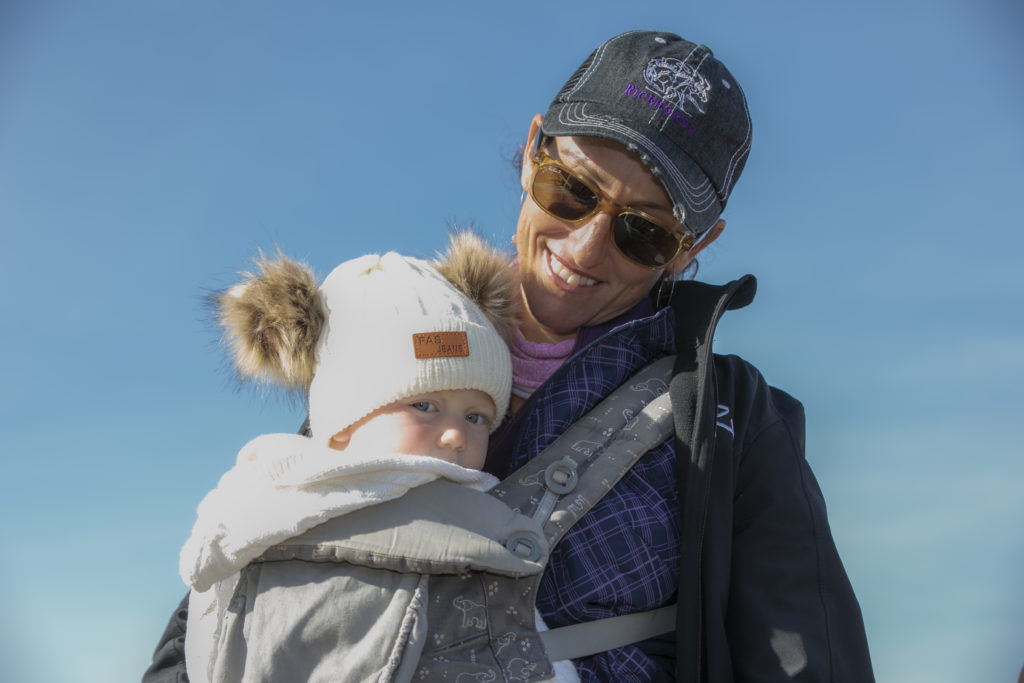
Nick also had a bit of wanderlust in him, working his way through East Africa, the Far East and Australia. In addition to working with horses during his travels, he herded cattle, picked apples and toiled in an iron ore mine.
“I was a bit of a rolling stone, living out of my backpack. It was a good education as well as a lot of fun,” says Nick. “I loved to travel and working with horses proved to be an effective vehicle to that end.”
In 1980, Nick’s travels brought him to the United States, where he soon was hired by yearling consignor L. Clay Camp. He worked his first yearling sale in Saratoga Springs, New York during the summer of 1981. That fall, he went to Lexington, Kentucky, to work the yearling sale for consignor Lee Eaton. There he met a young woman from western Kentucky named Jaqui Bazzel, who also was working for Eaton.
Born in Connecticut, Jaqui’s family moved to Mayfield, Kentucky, when she was 10. The only one in her family who was horse crazy, Jaqui bypassed the usual childhood first pony and went straight to first horse.
“I was 9 when I got Duke, my first horse,” says Jaqui. “I showed him in 4-H and we did all the classes—Western pleasure, barrel racing, pole bending and English. Duke was a great horse.”
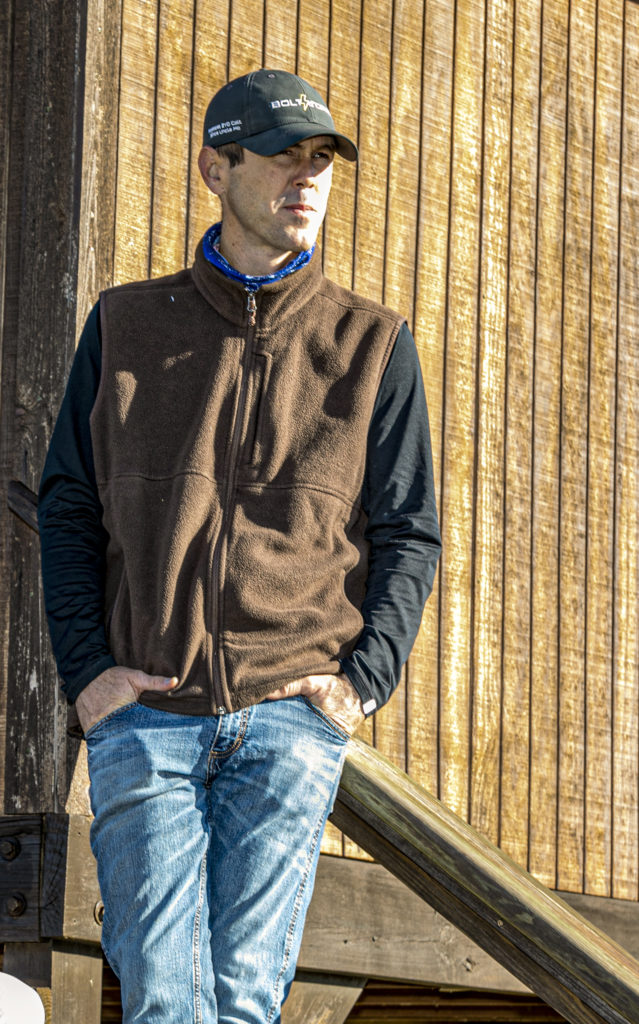
When she wasn’t riding Duke, Jaqui, an all-around animal lover, worked at the local veterinary clinic from ages 12-16. One of the clinic’s clients had Standardbreds and she started working with them on the weekends. When she graduated from high school, Jaqui moved to Louisville, Kentucky, working with Standardbreds and American Saddlebreds. On a recommendation, she got a job as a groom for yearling consignor Lee Eaton, meeting a certain Englishman named Nick de Meric at that 1981 Keeneland September sale.
“After the sale, Nick and I were sent with a group of yearlings to Foxfire Farm in Louisiana to get them ready for a 2-year-olds in training sale,” recalls Jaqui. “We lived for six months together in a farm cottage we called ‘Rancho Malaria’ because the mosquitoes were a big problem. And it was there that Nick taught me to gallop (exercise) thoroughbreds.”
Once the horses were sold in the spring of 1982, Nick took Jaqui to England where they lived and worked until returning to the U.S. that fall. While working in Ocala, Nick and Jaqui pooled their money to buy their first yearling together, privately purchasing a filly for $15,000. They readied her for the 1983 Ocala Breeders’ Sales (OBS) Company’s March juvenile venue, selling her for $30,000.
“We thought we were rich,” says Nick, smiling. “We bought a car, drove back to Kentucky and then got married that June. Before the year ended, we decided to move to Ocala and leased 80 acres at Stavola Farms for our pinhooking and training operation. We were on our way.”
In October 1985, Ali was born and by September of 1986, the de Merics bought their first 40 acres, dubbed Manuden Farm after the English village Nick’s grandparents were from.
“The farm was in terrible shape. The roof on the one barn was collapsing and the only thing keeping the barn up was that it was concrete block. The paddock fences were falling apart too; one touch and they’d fall like dominoes,” recalls Jaqui with a laugh. “We lived in an 18-foot trailer and converted the bathroom into Ali’s room; we turned the bathtub into her bed. We used the bathroom in the barn. And, oh…I was pregnant with Tristan.”
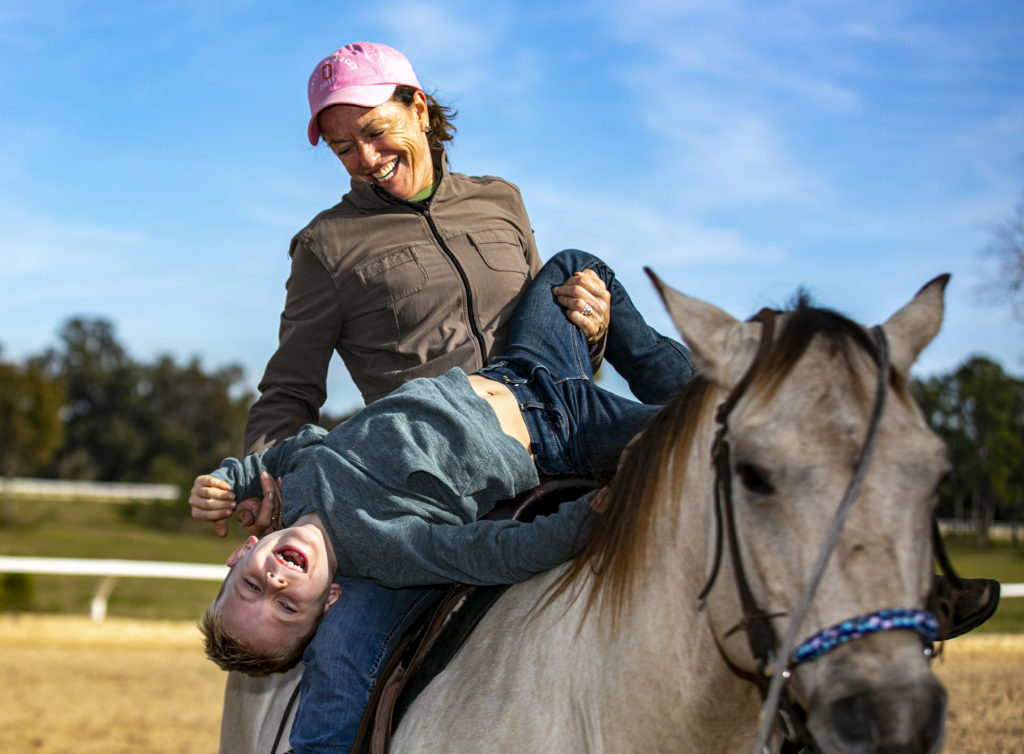
But the de Merics were committed and determined. Once the farm was renovated, they moved their operation to Manuden. Their family grew with Tristan being born in April 1987. Another child meant the need for bigger living quarters, so once they made a little money, a simple four-wall house was built. Each year, as their finances allowed, they added to the home until it became their dream house. In 1997, the de Merics bought an adjacent 230 acres that became their Eclipse Training Center.
Ali and Tristan grew as their parents’ thoroughbred business grew.
Second-Generation Horse Trainers
Ali inherited her mother’s black curly hair and outgoing personality, her father’s wanderlust, and both her parents’ passion for horses.
“I remember being mad if I woke up and it was daylight because that meant my father had gone to the barn without me. I was about 6 at the time,” says Ali. “I was riding the pony (lead) horse to and from the track with the sets of horses by the time I was 11. I was galloping by the time I was a teenager. When I was 16, I started homeschooling myself so I could spend more time at the barn.”
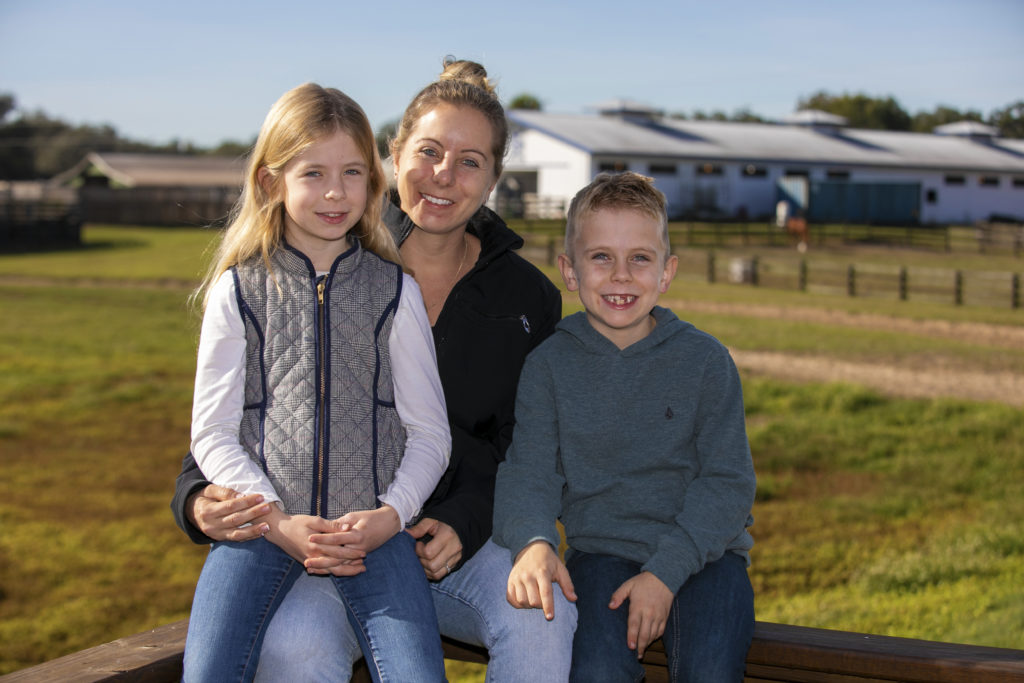
When she was 17, Ali was working at the 2002 Keeneland September yearling sale and was offered a job by a British agent and consignor. With her parents’ permission, she was off to England to work at the famous Tattersalls sale at Newmarket that October. It was the beginning of her travels working with thoroughbreds, her passport soon being stamped for Ireland, Canada, France and Japan.
“I loved traveling and working with horses in different cultures,” says Ali. “And wherever I went, people asked me about Ocala and I would brag about the thoroughbred industry here.”
In 2006, a unique bribe by her father slowed Ali down long enough to go to college.
“My father told me that he’d bought a house in Tampa and if I went to the University of Tampa, I could stay in the house for free. And when I graduated, the house would be mine,” says Ali. “I took him up on the offer and graduated in 2009 with a degree in business management. Then I rented out the house before eventually selling it.”
On her last trip to Japan in 2009, Ali brought along her fiance Brandon Rice. He is the grandson of the late Clyde and Jean Rice (Indian Prairie Ranch) and the son of Bryan and Holley Rice (Woodside Ranch). The two met as teenagers, not surprisingly at an OBS sale. After graduating from Florida State University with a degree in finance, Brandon traveled for the thoroughbred business to Ireland, England, Australia, New Zealand and Dubai.
“We started working together after we got back from Japan. We leased facilities at Woodside Ranch and had some early successes,” says Ali. “We got married in June 2012 and operate as RiceHorse Stables at Woodside Ranch in Fort McCoy.”
In September 2014, Ali traveled with Jaqui, who was invited by the Korean Racing Association to South Korea to give a 10-day clinic on their breaking and training techniques.
“It was great to have that amazing experience with my mother,” says Ali.
Tristan de Meric grew up alongside his sister and was always happy to ride the pony horse; he just wasn’t as gung-ho as Ali when it came to planning a career in the thoroughbred industry.
“I wasn’t interested in galloping horses like Ali was,” says Tristan, who is tall and lanky with his father’s reserved personality. “I liked baseball and, for some reason, thought I might like to go into the real estate business. But meanwhile I was working on the farm and at the sales. And I guess I didn’t realize I was soaking up more than I knew about the thoroughbred business.”
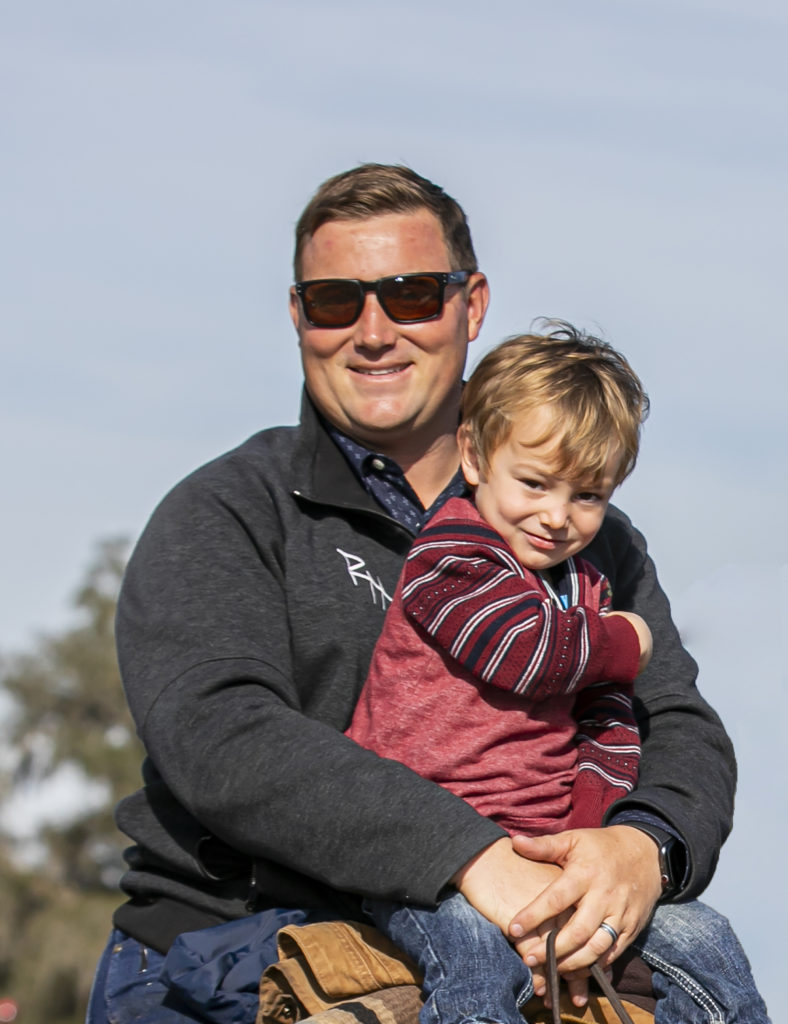
Like his sister, Tristan homeschooled the last two years of high school. He took a few general courses at the College of Central Florida, but nothing in particular piqued his interest. Then, while at a yearling sale, his father had an idea.
“My dad had my mom give me a sales catalog and she told me to go look at yearlings. She told me to grade them, by pedigree and conformation, and make what we call a short list of possible purchases,” says Tristan, who was 17 at the time. “I actually had a good time doing it and that’s when something clicked. That’s when I realized what I wanted to do for a career was right in front of me the whole time.”
And, just like his parents and sister, Tristan met his future spouse Valery at—of course—a horse sale. Valery was working for Ocala-based consignor Eddie Woods at that sale in Maryland. The two have been married for nine years now and own a 52-acre farm situated between Manuden Farm and Eclipse Training Center.
“I learned everything about training thoroughbreds from my parents, from horsemanship to doing everything with integrity,” says Tristan. “I love getting up in the morning and going to the barn. It was the way I was raised and I’ve come to realize just how fortunate I was to have had that upbringing.”
Third Generation in the Gate
Now another generation is growing up the way Ali and Tristan did.
Tristan and Valery have two children, Elizabeth (9) and Nathaniel (7). Elizabeth has two Welsh ponies and is already showing in hunter/jumper classes. Like his father was as a youngster, so far, Nathaniel is more into sports than horses.
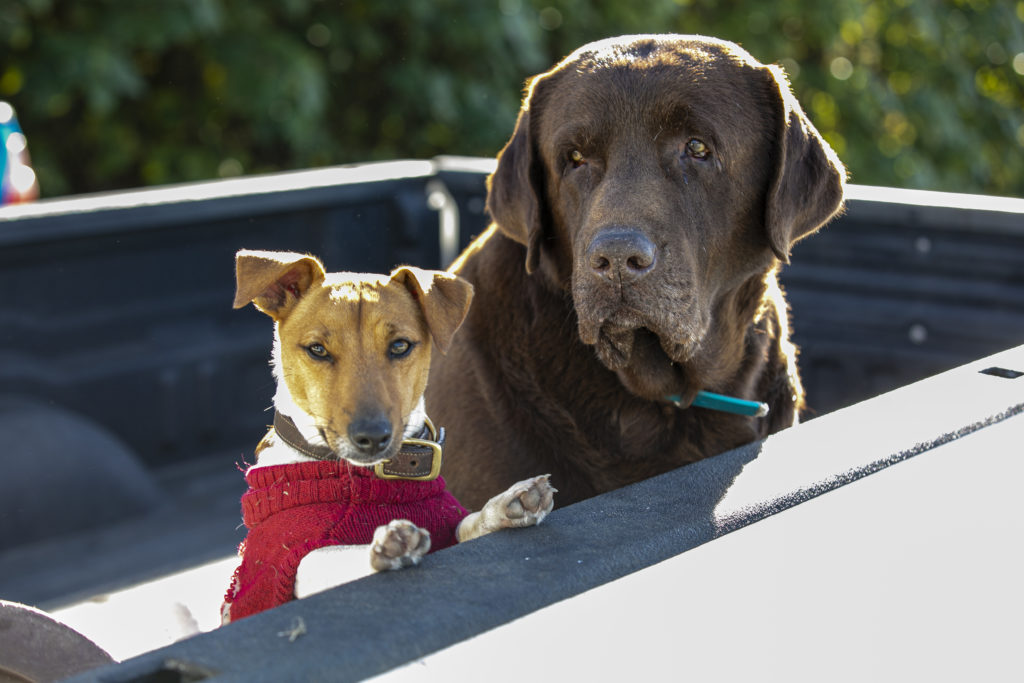
“Both Elizabeth and Nate are growing up coming to the barn,” says Tristan. “So we’ll see how it all plays out.”
Ali and Brandon are the parents of Preston (3) and Priscilla (9 months).
“Preston has two ponies, one to ride and the other is a companion for the other one,” says Ali. “He’s been coming to the barn since he was a baby, just like Priscilla is now. Right now, Preston loves to ride with me or Brandon on the pony horse more than he likes to ride his pony. But that’s likely to change as he gets older.”
Nick and Jaqui, who are seasoned, fit and still at the barn at dawn each day, marvel at how it has all turned out.
“We are very proud of Ali and Tris,” says Nick. “It’s enormously gratifying to see them enjoying being in, and having such success in, the thoroughbred business.”
To which Jaqui adds, “And, of course, we love our grandchildren. It’s like watching Ali and Tris grow up all over again. They all bring us so much joy.”
Yet another tie that binds.
For more information, visit www.demeric.com
